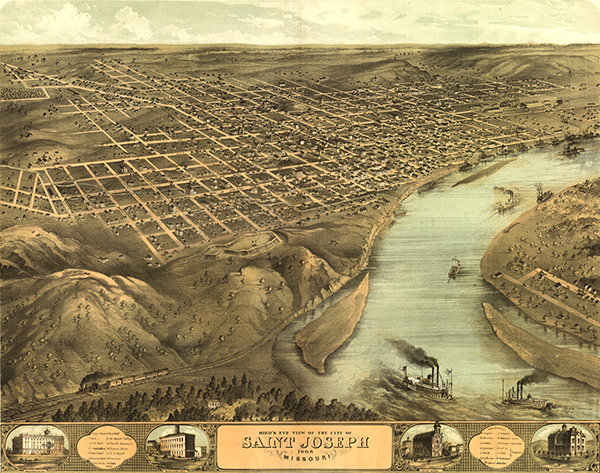Notable Events:
- Incorporated (1843)
- First major wagon train departed (1844)
- Dr. John Doy Jailbreak (July 23, 1859)
- Abraham Lincoln Visited (November 1859)
- Eastern Terminus of the Pony Express (April 3, 1860 - October 1861)
- Platte Bridge Railroad Tragedy, nearby (September 3, 1861)
- Looting of St. Joseph by Bushwhackers (September 1861)
- Jesse James Killed (April 3, 1882)
Throughout the Civil War, St. Joseph was the westernmost American city accessible by rail and thus one of the more important cities in the region. Known affectionately as "St. Joe," the city was the jumping-off point for westward travelers who disembarked at St. Joe, crossed the Missouri river by ferry into modern Kansas, and then continued on the St. Joe Road to travel overland and connect with the California or Oregon Trails. In this vein of westward expansion, St. Joe was also the eastern terminus of the short-lived Pony Express between 1860 and 1861, which briefly enhanced east-west communications before being replaced by telegraph lines. During the Civil War, St. Joe was once sacked by Missouri bushwhackers, and Jesse James was shot in his home in the city in 1882. Today, St. Joe has 18 historical museums, many of which preserve Civil War-era buildings and chronicle the mid-19th century American West.


